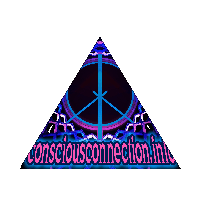Consciousness:
Consciousness refers to the state of being aware of one’s own existence, thoughts, emotions, and surroundings. It is a central concept in both philosophy and neuroscience, but it remains one of the most mysterious aspects of human experience.
Key Concepts of Consciousness:
Self-Awareness:
Consciousness involves being aware of oneself as a distinct entity. It’s not just about processing information but having a subjective experience and the ability to reflect on that experience.
Introspection: The act of thinking about one’s own thoughts is part of what makes consciousness so complex.
Phenomenal Experience:
Qualia are the subjective experiences of consciousness—what it feels like to experience the world. For example, the way you "feel" when you see the color red, or the sensation of pain, are personal and qualitative experiences that are hard to explain fully through objective science.
Theories of Consciousness:
Materialism/Physicalism: According to this view, consciousness arises from physical processes in the brain. It suggests that if we could fully understand the brain's workings, we would explain how consciousness emerges from neurons and their interactions.
Dualism: A theory proposed by philosopher René Descartes, dualism holds that the mind and body are separate. The mind (consciousness) exists independently of the physical body, which creates challenges in explaining how a non-material mind can interact with the body.
Integrated Information Theory (IIT): This theory posits that consciousness arises when a system processes information in a way that is highly integrated. According to IIT, consciousness depends on the capacity of a system to combine information in complex ways.
Challenges:
The Hard Problem of Consciousness: One of the most famous challenges in the study of consciousness is what philosopher David Chalmers calls "the hard problem." This is the question of why and how subjective experiences arise from physical brain activity. We understand a lot about how the brain works, but we don't understand why it feels like something to be conscious.
Simulation Theory and Consciousness: Intersections:
The two concepts—Simulation Theory and Consciousness—are connected in several intriguing ways:
Is Consciousness Real in a Simulation?
If we live in a simulation, a central question is whether our consciousness is “real.” Are we genuinely conscious, or are we simply programmed to think we are? If the simulation is sophisticated enough, it might be impossible to distinguish between simulated and "real" consciousness.
The Nature of Consciousness in Artificial Systems:
Could a computer or AI within a simulation possess consciousness? If an artificial system can simulate complex enough processes (such as human cognition or emotional responses), it might give rise to a form of consciousness, even if it's artificially created. This raises questions about the nature of consciousness itself—whether it is something fundamental or just a byproduct of complex computation.
The "Observer" in the Simulation:
In a simulation, our experience of reality could be based on the processing and observation of data. Theories like the observer effect in quantum mechanics suggest that reality only "exists" or becomes definite when observed. If we live in a simulation, consciousness might be central to the creation of our perceived reality—without conscious beings to observe it, the simulation may not "render" fully.
Emergence of Consciousness:
Whether in a biological brain or a simulated environment, consciousness might emerge as a result of complex interactions within a system. If consciousness can emerge in a simulation, it might support the idea that consciousness is not confined to biological entities but can arise in artificial, simulated environments as well.
My Conclusion . . .
Is reality just a game made up of 1’s and 0’s? Are we alive? Is our whole existence just a facade and we are all merely NPC’s here in a simulation? I guess that can be anyone's answer. But I personally feel that not to be true. In my heart I know that I have a soul that cannot be defined by 1’s and 0’s. My truth is defined by love and freewill and a belief in a god that created me and everything in the universe. We are all part of the creation or we would not exist. As far as artificial intelligence and a simulation, I don't think it is here now but it's right around the corner and I plan on staying far away from it. We as humans have something so powerful that we don't even know its full capabilities. Our brains, shouldn't we learn our full intelligence before giving it away to an artificial one. Just something to think about.















.png)
Comments